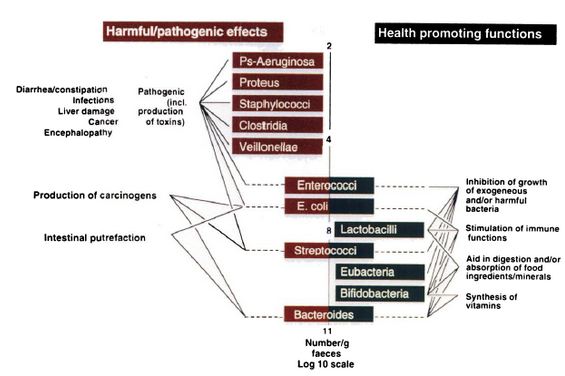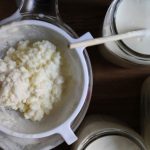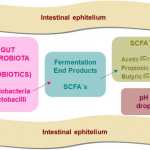Dietary Modulation of the Human Colonie Microbiota.
Because the human gut microbiota can play a major role in host health, there is currently some interest in the manipulation of the composition of the gut flora towards a potentially more remedial community. Attempts have been made to increase bacterial groups such as Bifidobacterium and Lactobacillus that are perceived as exerting health-promoting properties. Probiotics, defined as microbial food supplements that beneficially affect the host by improving its intestinal microbial balance, have been used to change the composition of colonie microbiota. However, such changes may be transient, and the implantation of exogenous bacteria therefore becomes limited. In contrast, prebiotics are nondigestible food ingredients that beneficially affect the host by selectively stimulating the growth and/or activity of one or a limited number of bacterial species already resident in the colon, and thus attempt to improve host health. Intake of prebiotics can significantly modulate the colonie microbiota by increasing the number of specific bacteria and thus changing the composition of the microbiota. Nondigestible oligosaccharides in general, and fructooligosaccharides in particular, are prebiotics. They have been shown to stimulate the growth of endogenous bifidobacteria, which, after a short feeding period, become predominant in human
feces. Moreover, these prebiotics modulate lipid metabolism, most likely via fermentation products. By combining the rationale of pro- and prebiotics, the concept of synbiotics is proposed to characterize some colonie foods with interesting nutritional properties that make these compounds candidates for classification as health-enhancing functional food ingredients.
That a prebiotic is indeed an efficient way to sig nificantly modify the composition of the gut microbiota has now been demonstrated, both in vitro and in vivo, for the nondigestible fructooligosaccha rides. That consumption of these food ingredients may positively influence host health is supported by experimental data showing increased cation ab sorption, improved lipid profile, certain effects as sociated with dietary fiber, and a low energy value. Compared with probiotics, prebiotics are likely to have distinct advantages such as the in stimulation of the growth of certain resident (endogenous/ commensal) bacteria, activation of bacterial metabolism, and their own physiological effects such as various dietary fiber-like properties. Moreover, prebiotics offer, for the first time, an opportunity to design human studies aimed at studying the health benefits of a colonie microbiota in which bifidobacteria are predominant.
http://jn.nutrition.org/content/125/6/1401.long






